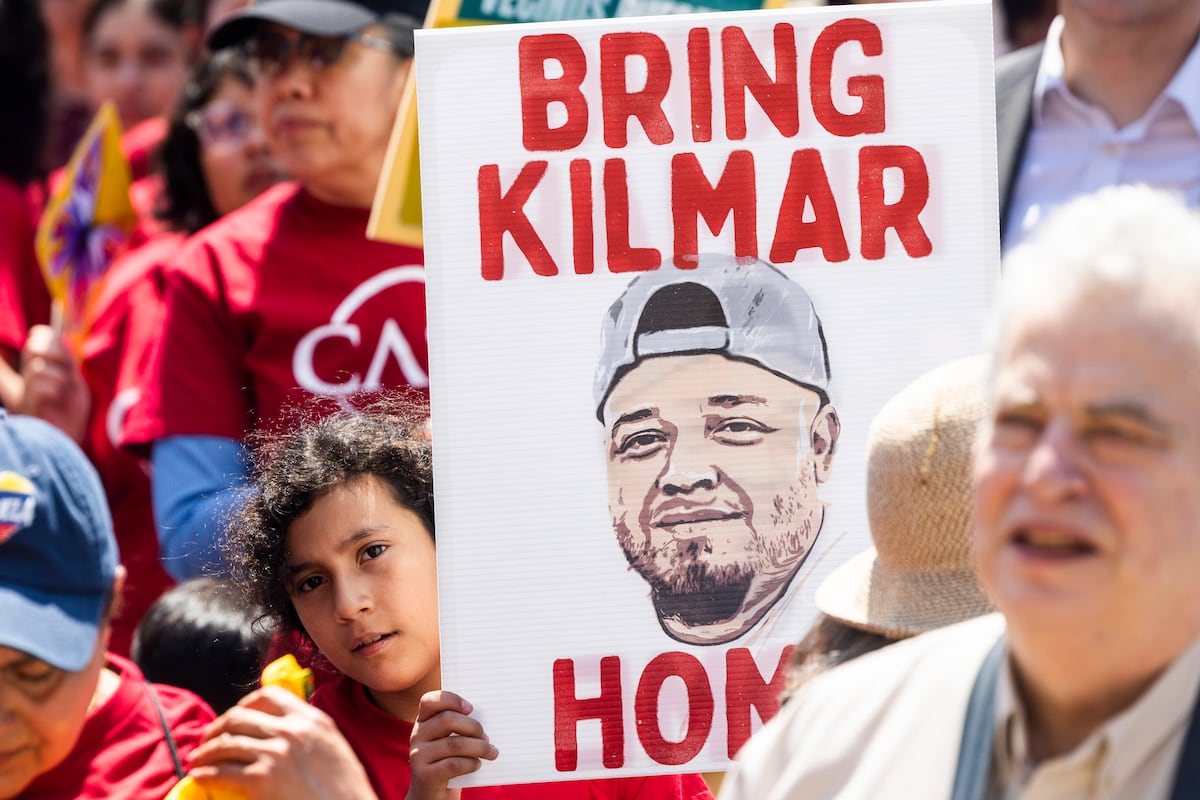The case of Kilmar Abrego García has become a focal point in the ongoing debate surrounding immigration and deportation policies in the United States. Abrego García, a Salvadoran native, faced wrongful deportation and subsequent legal battles that have drawn national attention. This article delves into the details of his case, exploring the complexities of immigration law and the human impact of deportation decisions.
This article provides a comprehensive overview of the legal proceedings, the key players involved, and the broader implications for immigration policy and human rights. By examining the details of Abrego García’s case, we can gain a deeper understanding of the challenges faced by immigrants in the United States and the importance of due process in immigration law.
Kilmar Abrego García: The Initial Deportation
Kilmar Abrego García’s ordeal began with his wrongful deportation to El Salvador. Despite having legal protections in place that should have prevented his removal, an administrative error led to his deportation. This initial deportation set off a chain of legal actions and public outcry, highlighting the potential for errors within the immigration system.
Abrego García had been living in Maryland with his wife, an American citizen, and their three children. He worked as a metalworker and had established a life in the United States after fleeing violence in El Salvador at the age of 16. His deportation separated him from his family and placed him in a precarious situation in a country he had left behind.
The Legal Battle: Judges Intervene
Following his deportation, Abrego García’s legal team initiated a series of legal challenges to fight for his return to the United States. These efforts led to multiple federal judges intervening in his case. Judge Xinis, in particular, ordered the government to facilitate his return, recognizing the injustice of his wrongful deportation.
The legal arguments centered on the violation of Abrego García’s due process rights and the potential dangers he faced in El Salvador due to gang violence. His lawyers argued that his deportation was a grave error and that he should be allowed to return to his family in the United States.
Return to the U.S. and Criminal Charges
In a surprising turn of events, the U.S. government brought Abrego García back to the United States, not to rectify their mistake, but to face criminal charges. He was accused of being a dangerous criminal involved in human smuggling. This decision sparked further controversy and raised questions about the government’s motives.
Upon his return, Abrego García was immediately taken into custody and detained in Tennessee, where he awaited trial on the charges against him. He pleaded not guilty, maintaining his innocence and asserting that the charges were politically motivated.
Judge Holmes Halts Release
After a judge ordered Abrego García’s release, another judge, Barbara Holmes, intervened to halt the release temporarily. This decision added another layer of complexity to the case, prolonging his detention and delaying his reunion with his family.
Judge Holmes’ decision to postpone his release was influenced by concerns that ICE would immediately rearrest him with the intention of deporting him to a third country, possibly Mexico or South Sudan. This concern underscored the ongoing legal battle and the government’s determination to deport him.
Implications for Immigration Policy
The case of Kilmar Abrego García has significant implications for immigration policy and the treatment of immigrants in the United States. It highlights the potential for errors within the system and the importance of due process rights. His case has become a symbol of the injustices that can occur in the context of mass deportations.
Advocates for immigration reform have pointed to Abrego García’s case as an example of the need for greater oversight and accountability within ICE and DHS. They argue that his wrongful deportation and subsequent criminal charges demonstrate a pattern of abuse and disregard for human rights.
Community Support and Advocacy
Throughout his legal battle, Kilmar Abrego García has received widespread support from community organizations and advocacy groups. CASA, in particular, has been instrumental in raising awareness about his case and advocating for his release. Their efforts have helped to keep his case in the public eye and have put pressure on the government to act justly.
Ama Frimpong, the legal director of CASA, emphasized the importance of accountability and oversight in the immigration process. She stated that while the threat of deportation remains, the court decisions provide some protection and reassurance to Abrego García and his family.
Conclusion: The Fight for Justice Continues
The case of Kilmar Abrego García is a complex and ongoing legal battle that highlights the challenges faced by immigrants in the United States. His wrongful deportation, subsequent criminal charges, and the legal interventions that followed have drawn national attention to the potential for injustices within the immigration system.
As his case continues to unfold, it serves as a reminder of the importance of due process, accountability, and the human rights of all individuals, regardless of their immigration status. The fight for justice for Kilmar Abrego García is far from over, and his story will likely continue to shape the debate surrounding immigration policy in the United States.

Leave a Reply